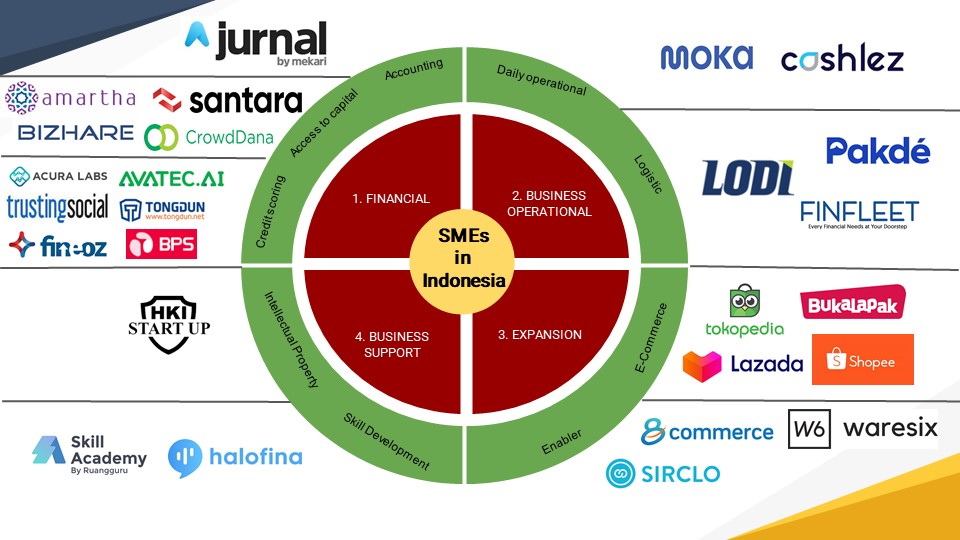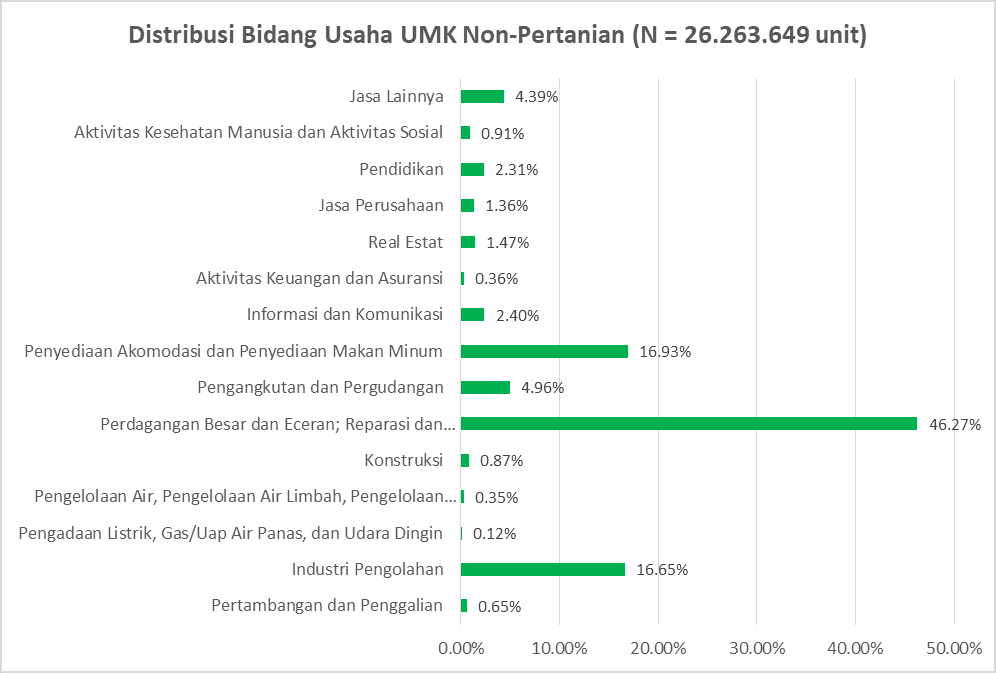“New Economy”, the Hidden Gem in the Technological Business Storm
Overseeing the development of SMEs dominating national businesses through a digital touch
Not long ago, we spoke with Fabian Budi Seputro as the owner of Sate Ratu in Yogyakarta. There is something unique about their culinary business, apart from serving satay with special spices, they record hundreds of customer visits from abroad every month. At least the shop has been visited by foreign tourists from 83 countries. It didn't just come, the owner devised a special strategy to introduce his business to international guests.
Digital marketing concept run consistently by Budi, so that it strengthens "online presence". He uses tourism review sites such as Tripadvisor to inform tourists who plan to visit Yogyakarta. Also take advantage of paid advertising services to target the presentation of promotional content created to potential customers.
The Brodo shoe brand may be familiar to the younger generation who likes to play social media amidst the onslaught of products sneakers global. Take advantage of the channel E-commerce and social media, the business that was founded in 2010 applies a different business model from shoe manufacturers in general, namely selling directly to consumers (direct-to-consumer), instead of through retail distribution. The impact is of course on lower selling prices, because they cut the supply chain, so they can focus on product quality.

Another business story, Dreams. A manufacturer of premium mattresses with materials that allow it to be packaged very compactly, even for couriers who use motorbikes. Great with packaging innovation, they launched own buying and selling site and only serve sales online online. Cutting the sales chain, the Dream party claims to be able to provide price efficiency up to 1/3 of the product of the same quality in the store.
Empowerment of digital tools in specific aspects of the business above which we refer to as "new economy". Not applied in all business processes, only certain ones, but has a significant impact--even spearheading-in accelerating product sales.
A touch of technology in the right measure
According to data from the Ministry of Cooperatives and Small and Medium Enterprises, as of 2018 there are approx 64 million MSMEs spread all over Indonesia. Its existence managed to absorb 116,9 million workers, or equivalent to 97% of the entire national labor absorption. This figure is projected to continue to increase, along with the opening of access and opportunities for various new businesses, including capital. Of the total existing units, only about 8% have utilized digital platforms to accelerate business.
However, if traced, 8% means there are around 5,1 million business units that have utilized technology services, in the sense that they intensively get meaningful benefits through digital transactions – the majority do use it to help product marketing. This number continues to be strived to increase, one of which is through a series of programs "go-digital" initiated by the government in collaboration with technology companies in Indonesia.
The jargon of “digital transformation” sometimes looks cliché, but in fact the right technology can bring multiple benefits for business people. Unfortunately according to McKinsey research, so far as 70% of businesses that undergo transformation fail. There are many failure stories told, but there are two that stand out the most often said. First, the leader does not have a clear goal of the transformation carried out. Second, inadequate digital competence actually presents business obstacles. It seems that this does not only happen to large-scale businesses, but also to SMEs.
Story new economy is about those who have successfully adopted technology in proportion. Technology is applied to really support productivity, although some even become the "life" of the business itself. It is also a story about the foresight of SME players who are able to see golden opportunities that other businessmen may not think of. As Budi did with the Sate Ratu strategy; who would have thought that they could attract international guests in the midst of the legendary satay culinary options that are widely sold in Yogyakarta.
Those who are ready to support new economy
In Indonesia, there are many digital startups that deliberately develop products to help SMEs. The types are pretty much evenly distributed in all aspects, from financial, operational, expansion to other support. Although many SMEs also take advantage of external platforms such as popular social media or sites that reach global users.

The opportunity is still wide open to make SMEs as target users. Considering that SME products themselves also accommodate all segments of society – both general and specific, from toddlers to seniors. The reach of its consumers is also very broad, even to the user segment that is not covered by digital services, for example from the 3T area.
More specifically, the Economic Census conducted by BPS in 2016 succeeded in mapping the SME business sector in Indonesia. Currently, the trade sector still occupies the most dominant portion.
In line with the types of digital startups that are trying to bring technology to SMEs, most of them online to be applied in the trade sector – requires sales channels, logistics, recording to funding. No doubt it unicorn also rushed to present a program specifically to engage SMEs in this field into their business, one of which is through partnership program.

Another strategy that has been implemented by businesses to partner with SMEs is one of them represented in the program Gojek Xcelerate. In the third round of the accelerated program, the majority are filled by SMEs that produce products and utilize digital channels for distribution. Like Callista, which sells skin health products, Pijak Bumi, a competitor to Brodo, Mayer Food, which is trying to digitize the process of buying and selling chicken meat, and so on.
Some investors early stage also seemed to be preparing to welcome this business boom. Newest East Ventures leads Greenly funding, a non-tech startup serving healthy food and drink options. Based in Surabaya, the business was indeed initiated by a nutritionist. To distribute their products, they use digital channels, such as the GoFood application and GrabFood -- also have retail which will be optimized with the approach online to offline.
With the largest portion of business players, in addition to employment, the SME sector is expected to boost the national economy. According to the Indonesian Association of Micro, Small and Medium Enterprises (Akumindo), SMEs contribution Gross domestic product (GDP) in 2019 reached 65% or around Rp.2.394,5 trillion, growing 5% from the previous year. It is hoped that with the increasing literacy of SME players with technology, it is hoped that they can spur business development through market expansion and product innovation that is increasingly affordable.
Sign up for our
newsletter
